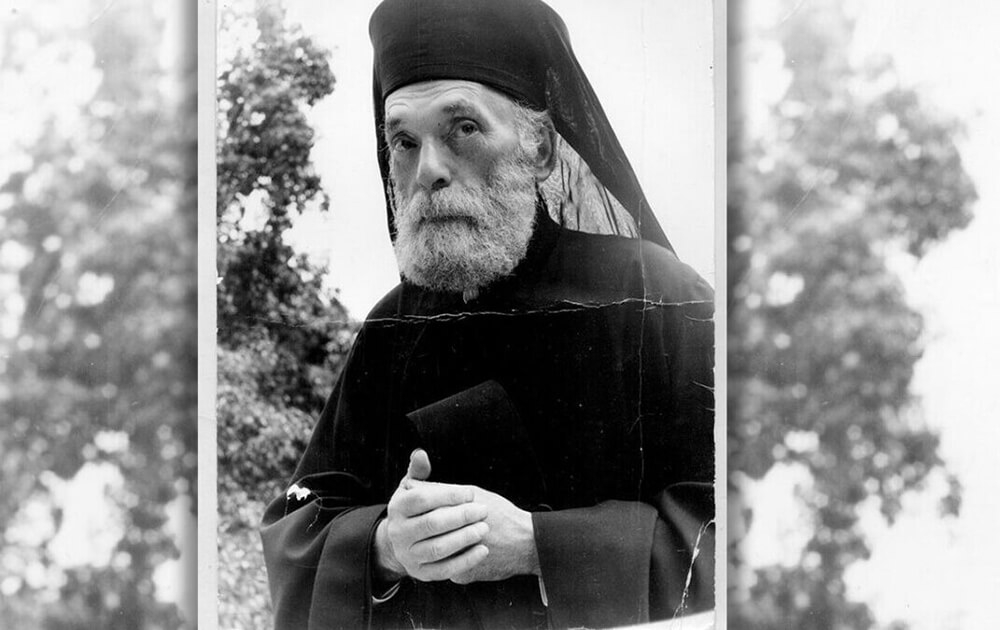
The spiritual evening in October sought to give contours to another Gospel behavior: fearlessness.
Fearlessness ought to be a defining characteristic of a Christian, yet its acquisition is possible only with the help of divine grace. The Lord teaches what exactly we should fear and how we should set limits on fear: “Do not be afraid of those that kill the body, and after that have no more that they can do. But I will show you whom you should fear: Fear Him who, after He has killed, has power to cast into hell” (Luke 12:4-5). Elder Arsenie Papacioc confirms this word of our Lord, emphasizing what should worry us as Christians: “Throughout my whole life, I only feared disobedience.” Meaning, he feared doing anything without God’s blessing. Since we are more carnal than spiritual, we fear what brings about bodily death more than we fear God. And, through the deception of the evil one, we fall from obedience, and this is spiritual death.
In our days, we suffer greatly from fear – of suffering, of the devil, of death. Fear can be surpassed firstly through God’s grace, and also through several helpful methods. For example, fear of suffering can be conquered only when we come to know suffering, by enduring patiently, because fear of suffering does nothing but to keep us enslaved to it.
Fear largely results from disbelief. Saint Paisios of Mount Athos observes: “Today, all evil comes from disbelief. Once upon a time, people had faith. Maybe they were simple, maybe they didn’t understand anything they heard in church. Some didn’t even know that there were four Gospels; they thought there were twelve. But what great faith and piety they had! How courageous the nurses were! How many of them served as volunteers during wars! They had faith and a self-sacrificial spirit and they helped immensely.” So, if we know whom we serve and to whom we belong, we need not fear anything.
Suffering ought not to terrify us. Father Nicolae Steinhardt encourages us with these words: “Let the world not preoccupy us. We should consider joy our very first obligation. And we should not forget that a Christian’s first obligation is to know how to suffer. Let us be courageous and daring, and also gentle and humble of heart… We should not cling to life, but rather be ever ready to sacrifice it, scorning trivialities.”
Saint Sophrony Sakharov sweetens this characteristic of one who knows suffering: “At the lowest part of the inverted pyramid, in its deepest point, the One Who took upon Himself the sin and burden of the entire world out of love for the world – the Crucified Christ, reveals Himself with a totally new life, a totally new light, a new fragrance. The ascetic of Christ is drawn to that point out of love.”

Suffering can be transformed, if we orient ourselves correctly such that we can attract grace, which will help us bear that suffering. An example is the martyrdom of Perpetua and Felicitas. Since they refused to offer sacrifices to the idols, they were awaiting martyrdom. And we learn: “As for Felicitas, she too enjoyed the Lord’s favor in this wise. She had been pregnant when she was arrested, and was now in her eighth month. As the day of the spectacle drew near, she was very distressed that her martyrdom would be postponed because of her pregnancy; for it is against the law for women with child to be executed. Thus, she might have to shed her holy, innocent blood afterwards along with others who were common criminals. Her comrades in martyrdom were also saddened; for they were afraid that they would have to leave behind so fine a companion to travel alone on the same road to hope. And so, two days before the contest, they poured forth a prayer to the Lord in one torrent of common grief. And immediately after their prayer the birth pains came upon her. She suffered a good deal in her labor because of the natural difficulty of an eight months’ delivery. Hence one of the assistants of the prison guards said to her: ‘You suffer so much now—what will you do when you are tossed to the beasts? Little did you think of them when you refused to sacrifice.’ ‘What I am suffering now’, she replied, ‘I suffer by myself. But then Another will be inside me Who will suffer for me, just as I shall be suffering for Him.’ And she gave birth to a girl; and one of the sisters brought her up as her own daughter.” So, through grace, alongside Christ, suffering is borne in a new way.
Another way that suffering can be transformed is through love of enemies. Saint Silouan the Athonite explains: “The soul cannot have peace if it does not pray for its enemies. The Lord taught me to love my enemies. Without God’s grace, we cannot love our enemies, but when the Holy Spirit teaches us love, then we will pity even the demons, because they have rejected every good and have lost humility and God’s love. I implore you, my brethren, to make an experiment. If someone slanders you or shames you or takes what is yours, or persecutes the Church, pray to the Lord saying: ‘Lord, we are all Thy creatures. Have mercy on Thy servants and turn them to repentance!’ And then you will tangibly bear grace in your soul. At the beginning, force your heart to love your enemies, and the Lord, seeing your good desire, will help you in all things, and experience itself will guide you.”
